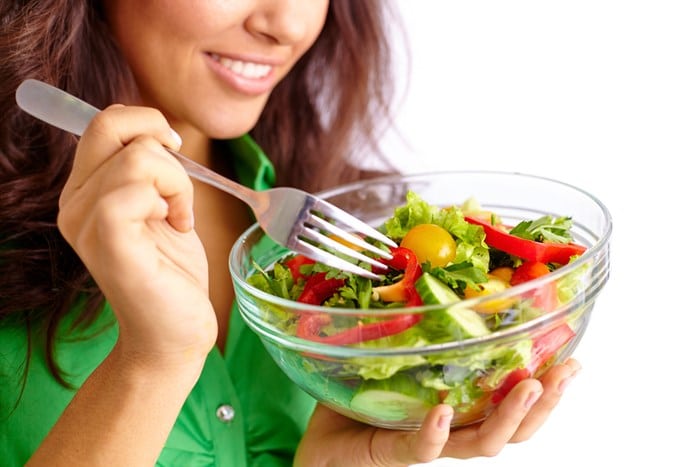Nearly 80% of people following a liposuction procedure believe that no diet adjustments are needed post-surgery. However, integrating a specific liposuction diet is crucial for maintaining those newfound contours and ensuring long-lasting results. This blog post dives into the essential components of an effective liposuction diet, debunking myths and highlighting how certain foods can either enhance or undermine your surgical outcomes. Whether you’re in the planning stages or recovering from surgery, understanding the role of nutrition will empower you to keep that sculpted look well into the future.
Understanding Liposuction Recovery Nutrition
Balanced Diet
A balanced diet plays a crucial role in liposuction recovery. It speeds up the healing process and reduces inflammation. Foods rich in vitamins, minerals, and antioxidants support wound healing and tissue repair.
Incorporate plenty of fruits, vegetables, lean proteins, and whole grains into your meals. These nutrients are essential for rebuilding tissues damaged during surgery.
Hydration Importance
Hydration is key to a smooth recovery post-liposuction. It aids in flushing out toxins from the body. Drinking enough water also helps reduce swelling and prevents dehydration.
Aim for at least eight glasses of water daily. You can include herbal teas and clear broths to stay hydrated.
Essential Nutrients for Post-Liposuction Healing
Key Vitamins
After undergoing liposuction, embracing a diet rich in specific vitamins can significantly enhance the healing process. Vitamin C is crucial as it aids in collagen formation, vital for wound healing and skin elasticity. Equally important, Vitamin A supports the immune system and helps repair body tissues. B vitamins play a pivotal role in energy production, which is essential for recovery.
Patients should consult their plastic surgeons on how to incorporate these vitamins into their diets effectively. Foods like citrus fruits, leafy greens, and lean meats are excellent sources.
Protein Power
Protein stands out as an indispensable nutrient post-liposuction. It’s fundamental in rebuilding tissues and bolstering immune function. High-quality protein sources such as chicken, fish, tofu, and legumes not only support the body’s repair mechanisms but also help maintain muscle mass after surgery.
Surgeons often emphasize protein’s significance during recovery periods. Including adequate protein in one’s diet can expedite healing times.
Omega-3 Benefits
Omega-3 fatty acids are renowned for their anti-inflammatory properties, making them beneficial after procedures like liposuction. These fats aid in reducing swelling and promote heart health by lowering blood pressure levels.
Sources of omega-3 include fish oil supplements or fatty fish such as salmon and mackerel. Patients should aim to integrate these into their post-surgery diet plan to leverage omega-3’s advantages fully.
Beneficial Foods for Liposuction Recovery
Anti-Inflammatory Foods
After liposuction, reducing swelling is crucial. Berries like strawberries and blueberries contain antioxidants that fight inflammation. Leafy greens such as spinach and kale are also beneficial. They are packed with vitamins to speed up recovery. Adding nuts, especially almonds and walnuts, provides healthy fats that aid in reducing inflammation.
Leafy greens can be easily incorporated into smoothies or salads. Berries make a great snack or dessert option.
Lean Proteins
Proteins are the building blocks of tissue repair. Incorporating lean proteins into your diet post-liposuction supports this process. Chicken and fish are excellent sources of high-quality protein that’s easy on the digestive system. Legumes, including beans and lentils, offer plant-based protein options that are both nutritious and filling.
These foods can form the basis of main meals, ensuring you get enough protein throughout the day.
Whole Grains & Fiber
Digestive health is vital after liposuction surgery to avoid discomfort from constipation. Whole grains like brown rice and quinoa provide necessary fiber to keep things moving smoothly through your gut. Fibrous foods such as broccoli, apples, and chia seeds should also be part of your diet to enhance digestion.
Including these foods in daily meals helps maintain regular bowel movements and prevents digestive issues during recovery.
Meal Planning Strategies Post-Liposuction
Advance Preparation
Preparing meals in advance is a key loss strategy post-liposuction. It ensures that nutritional needs are met without the stress of daily cooking.
By setting aside time to prepare meals for the week, individuals can focus on recovery and rest. This approach also helps in sticking to a balanced diet, crucial for optimal healing.
Small Meals
Eating small, frequent meals throughout the day can maintain energy levels and support metabolism.
This eating pattern aids in keeping blood sugar levels stable, reducing cravings for unhealthy foods. It’s especially beneficial during the recovery phase when physical activity is limited.
Healthy Snacks
Keeping healthy snacks readily available is essential to avoid reaching for unhealthy options during recovery.
Options like fruits, nuts, or yogurt provide necessary nutrients and help in managing hunger between meals. They play a significant role in adhering to a healthy diet post-surgery.
Foods to Avoid After Liposuction
High Sodium
High-sodium foods can be your worst enemy post-liposuction. They exacerbate swelling and promote fluid retention. It’s crucial to steer clear of processed foods, canned soups, and snacks high in salt.
Avoiding these items helps reduce the risk of complications. This ensures a smoother recovery process.

Sugary Foods
Sugary foods and refined carbs should also be off your list. These culprits can lead to weight gain, which is counterproductive after liposuction. Moreover, they slow down the healing process by affecting your body’s ability to recover.
Opt for whole grains and fruits instead. They provide essential nutrients without the added sugar.
Alcohol Intake
Limiting alcohol intake is vital for a successful recovery. Alcohol impairs wound healing and leads to dehydration. It’s best to avoid it altogether during the initial recovery phase.
This step not only promotes better health but also ensures quicker recovery times.
Dietary Tips for Optimizing Recovery
Stay Hydrated
Proper hydration plays a crucial role in the recovery process. Drinking plenty of water, herbal teas, and electrolyte-rich drinks helps flush toxins from your body. This supports healing by keeping tissues well-hydrated and reducing inflammation.
It’s essential to listen to your body and drink when you feel thirsty. Avoid beverages that can dehydrate you, such as alcohol or high-caffeine drinks.
Eat Protein
Protein is vital for the healing process. It aids in repairing tissues damaged during liposuction and supports new tissue growth. Incorporate lean sources of protein like chicken, fish, tofu, and legumes into your diet.
Consuming enough protein also helps maintain muscle mass during your recovery period when physical activity might be limited.
Boost Fiber Intake
A balanced diet rich in fiber supports the digestive system and prevents constipation—a common issue after surgery due to reduced mobility and certain medications. Fruits, vegetables, whole grains, and legumes are excellent sources of fiber.
They not only aid digestion but also provide vital nutrients that promote healing.
Limit Alcohol
Alcohol can hinder the recovery process by causing dehydration and slowing down the healing process. It’s advisable to avoid alcohol entirely or consume it sparingly during recovery.
This ensures your body focuses on healing without unnecessary setbacks.
Maintaining Results with Healthy Eating
Balanced Diet
A balanced diet plays a crucial role in maintaining the results post-liposuction. It’s not just about cutting calories; it’s about nourishing your body. Whole foods, rich in nutrients, should form the base of your meals.
Incorporate plenty of leafy greens and fresh fruits into your daily intake. These foods are low in calories but high in vitamins and minerals. They aid in healing and help you maintain a healthy weight.
Lean protein sources like chicken, fish, and legumes support muscle repair and growth. This is vital for keeping up metabolism rates.
Regular Exercise
Once fully recovered from surgery, integrating regular exercise into your routine is essential. It helps prevent weight gain that can reverse liposuction results.
Exercise doesn’t only burn fat; it strengthens muscles and boosts overall health. Aim for a mix of cardio, strength training, and flexibility exercises each week.
Mindful Eating
Adopting mindful eating practices encourages a healthier relationship with food. Listen to your body’s hunger cues rather than eating out of boredom or emotion.
Focus on whole grains over processed options to keep full longer without overeating. This approach supports sustained weight management after liposuction.
Summary
Navigating your diet after liposuction is crucial for a swift and effective recovery. You’ve learned about the importance of nutrition in healing, the essential nutrients and foods that aid in your recovery, and how to plan your meals post-surgery. Equally important, you know what foods to steer clear of and have gathered valuable dietary tips to optimize your recovery process. Maintaining your results isn’t just about what you eat immediately after the procedure but also about adopting a healthy eating lifestyle long-term.
Remember, your journey doesn’t end with recovery; it’s merely the beginning of embracing a healthier version of yourself. By integrating these nutritional strategies into your daily routine, you’re not just ensuring a smoother recovery but also investing in lasting results. Take this knowledge, apply it, and watch as it transforms your post-liposuction journey into a success story. Ready to make a change? Start planning your post-liposuction diet today and set the stage for a healthier tomorrow.
Frequently Asked Questions
What should I eat during my liposuction recovery?
Focus on lean proteins, fruits, vegetables, and whole grains. These foods provide essential nutrients that aid in healing and reduce inflammation.
Are there any foods I should avoid after liposuction?
Yes, steer clear of processed foods, sugary snacks, and high-sodium items as they can hinder your recovery process.
How can meal planning help me after liposuction?
Meal planning ensures you have healthy options readily available, helping you maintain a nutritious diet crucial for your recovery and results.
What are the key nutrients needed for post-liposuction healing?
Prioritize protein for tissue repair, vitamin C for collagen production, and zinc to support immune function—all vital for a smooth recovery.
Can diet affect my liposuction results in the long term?
Absolutely. A balanced diet is essential to maintain your liposuction results. Overeating or poor nutrition can lead to weight gain that may alter your outcomes.
Any dietary tips to optimize my recovery after liposuction?
Stay hydrated, eat small frequent meals rich in vitamins and minerals, and avoid alcohol to enhance your body’s healing capability post-surgery.
How does maintaining a healthy eating habit benefit me post-liposuction?
Healthy eating supports sustained weight management and enhances overall well-being—key factors in preserving the sculpted appearance achieved through liposuction.

